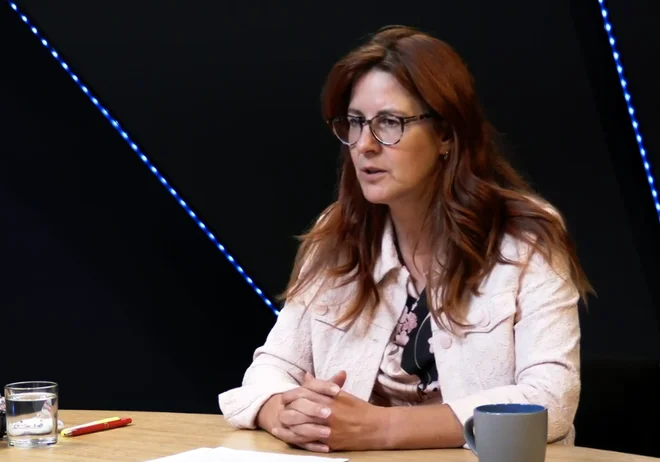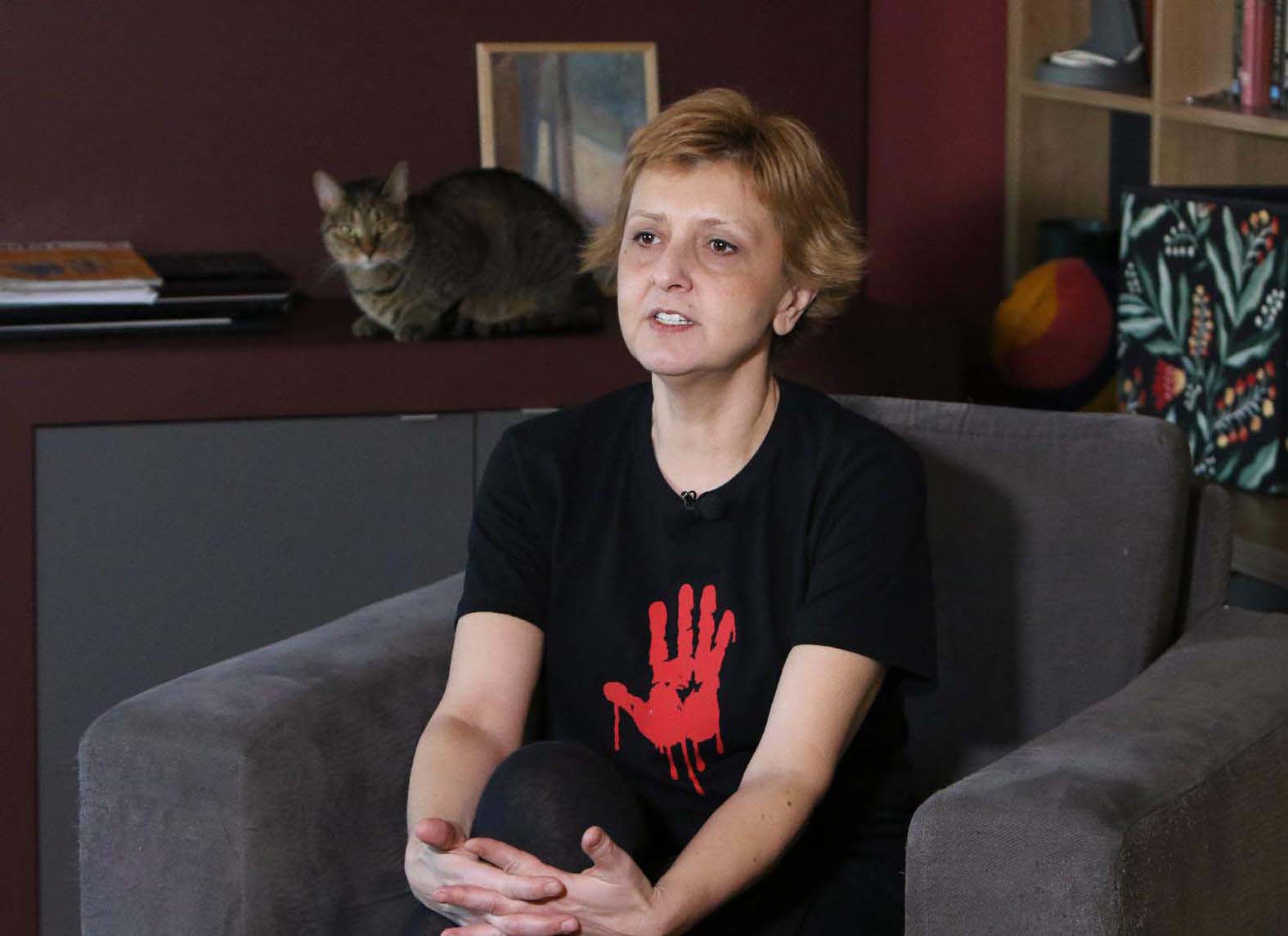Evgen Benedik: Miraculous Super Farms

Dense sixth episode of podcast In the outpatient clinic with dr. Eagle has been Asst. dr. Evgen Benedik, Clinical dietitian, nutrition advisor at UKC Ljubljana and the Biotechnical Faculty of UL, whose main subject of study is nutrition. The word was about various myths that spread from mouth to mouth, through social networks and the like, about nutritional (fashion) trends and the impact of marketing on this, as well as what we are talking about when talking about healthy nutrition, and which is best for our immune system.
o interlocutor
Evgen Benedik is Assistant Professor of Nutrition at the Biotechnical Faculty of the University of Ljubljana, where he received his doctorate with a dissertation Nutrition during pregnancy and breastfeeding and fatty acid composition of human milk, and a clinical dietitian at the Department of Gastroenterology, Hepatology and Nutrition and the Department of Neonatology of the Pediatric Clinic of the University Hospital Center Ljubljana. He is an active member of various domestic and foreign professional and scientific associations, and also provides nutrition counseling. In addition to appearing in the media, it is also active on Instagram where it can be found below @evgen.benedikRock Orel therefore named him in the podcast Influencer.
Every few years we have issued new nutrition guidelines. Sometimes these are small additions to the old, other times of radical turnarounds. Different groups of people advocate different diets. What do you say about it?
Nutrition as part of our lives is important. She is still relatively young, she is exploring and discovering a lot, so people are justifiably somewhat confused at times. But they are scientific evidence always a criterion.
It is also true that people will follow any nutritional advice. They play with the effect of placebo. Because of this, they will feel better and will not know whether something really works on them or not. There are also a bunch of quasi -scientific articles that address people to eating ways that can be threatened in the long run. According to some estimates, eighty percent of scientific articles in the field of nutrition use incorrect statistics or joints on a small sample of subjects, or these researchers do not know how to conduct a controlled study. All types of information are available online today, on social networks, and people find themselves in an unfavorable position where they have to decide in some ways what to practice. If they choose something they pay for, they will not admit that they are not responsible.
People would follow any nutritional advice. They play with the effect of placebo. Because of this, they will feel better and will not know whether something really works on them or not.
You have quite a few controversy with vegan advocates. A few years ago, Prime Minister Golob named the Food Strategic Council, which then submitted documents for the provision of vegan food in public institutions such as schools and kindergartens. The profession is against. What is the end of this brainstorm in practice?
Yes, they wanted to introduce a vegan meal or nutrition into kindergartens and primary and secondary schools. The entire pediatric profession and dietitians, who work in the field of pediatrics, then prepared a document explaining that this is not the case. Their argument was that, especially in the USA, various professional associations took the view that vegan diets, if properly balanced, were perfectly fine for children, pregnant women, breast -feeding mothers, patients with chronic diseases, ie vulnerable groups. This, in my opinion, is the discredit of these institutions, which are supposed to defend something that has no evidence for. However, we have evidence of the unfavorable effect of a vegan diet in the pediatric period when children develop and grow.
We blocked their idea at that time, but then announced a document with nutrition guidelines for Slovenes in the future, which would include a major transition to vegan nutrition.
An interesting and somewhat overlooked thing in our diet is, according to the interlocutor of the mushroom, even the ones we collect in the woods. Photo Maria Evseyeva/Shutterstock
We cannot get some vital substances from a plant diet alone, so we practically need nutritional supplements. But do most people need them in today’s lifestyle and eating?
If they were fed balanced, they would not need nutritional supplements, except for vitamin D in the autumn-winter months. However, since most people, at least after the studies we have for Slovenes, do not eat balanced, the likelihood of a deficiency of certain vitamins is, of course, higher.
We need to know that nutritional supplements, though, look like medicines, but they are something completely different on the legislative. Because they are regulated by other legislation, they can be more or less quality. The price does not necessarily reflect quality because it is often in the background marketing. If it is good, it convinces you that you need it, and quality can be questionable. Therefore, it is best to buy nutritional supplements at a pharmacy where they are checked, and pharmacists or pharmacists know how to advise you.

For a good immune system, it must be generally fit; In addition to proper nutrition, stress, sleep and physical activity are also important. Photo ndab Creativity/Shutterstock
What is your opinion on gluten? Gluten -free food is very popular. Anyone who has celiac disease should not consume it in minimal quantities, and many people imagine that gluten is hurting them.
If we have no problems, we can enjoy it in normal quantities. The gluten -free diet also spread very much because of celebrities and media campaigns. These foods are relatively accessible and are very paid to manufacturers because their sales grow beautifully. If people feed on balanced and find that a gluten -free diet suits them and feel better, they will not lack a lot of nutrients in principle. Only the wallet will suffer a little more.
If they were fed balanced, they would not need nutritional supplements, except for vitamin D in the autumn-winter months.
The folk myth is also that carbohydrates are bred. Comment?
Not all carbohydrates are the same and we should not throw all in the same bin. They are an important part of our diet, but we need to resort to the whole -witness, that there is also dietary fiber, which in combination reduces the glycemic index.
So fat?
Depending on which we are talking about and in what amount. If they are in a solid state, they are saturated if they are liquid, they are unsaturated. Ingesting too much first, it can adversely affect our health, if we are eliminated, it is also wrong because our body needs them in a small amount.
Are there foods that help people lose weight?
I would say briefly that the answer is no. We have a very wrong weight loss.
How would you comment on the phenomenon of superfood? I don’t even imagine what it should be.
The nutrition is attributed to certain almost supernatural properties. There is no miracle superfood. The ‘superfood’ they sell with us is mostly from third countries, such as strawberries, Acai … People spend enormous amounts for this, full of misleading, but no one thinks that we also have a lot of superfood at home, but we don’t notice it because we find it too mundane.

Why buy expensive superfood from third countries, which is not if ‘superfood’, such as blueberries, grows at home. Photo Tadej Regent
What is better from a medical point of view: regular meals or interruption, intermittent fasting?
The official claim is that adults are recommended from three to five meals a day, and at least five or more to the elderly and children.
Intermittent starvation It is an interesting phenomenon or almost a fashion fly. What science knows at the moment is that some individuals can do it extremely well. Others, who are also extremely good for them, after they stop practicing, make it metabolic. We are currently unable to determine which one would belong to the first or second group. Therefore, the profession is intensively exploring this and tries to understand the background mechanisms. I would have waited for a while with definitive answers until science gives any smart answer.
If they were fed balanced, they would not need nutritional supplements, except for vitamin D in the autumn-winter months.
What would you recommend to strengthen your immune and nervous system?
There are relatively many antioxidants in medicinal plants from which we cook teas, many polyphenolic and certain other components. Interesting and maybe in our diet a little overlooked thing are mushrooms. But vitamin D, which will not be enough in the fall and winter months, so we need a medicine or a dietary supplement.
In addition, a good immune system needs to be generally fit, with quality sources of protein. Avoid stress, sleep quality and be moderately physically active.




/s3/static.nrc.nl/images/gn4/stripped/data132657811-5cb9dd.jpg|https://images.nrc.nl/wXnxddPZWBf_UaXq4OULRKY72dk=/1920x/filters:no_upscale()/s3/static.nrc.nl/images/gn4/stripped/data132657811-5cb9dd.jpg|https://images.nrc.nl/fbu7o8eOCVsnV4Myx3KiYUzpN9w=/5760x/filters:no_upscale()/s3/static.nrc.nl/images/gn4/stripped/data132657811-5cb9dd.jpg)


